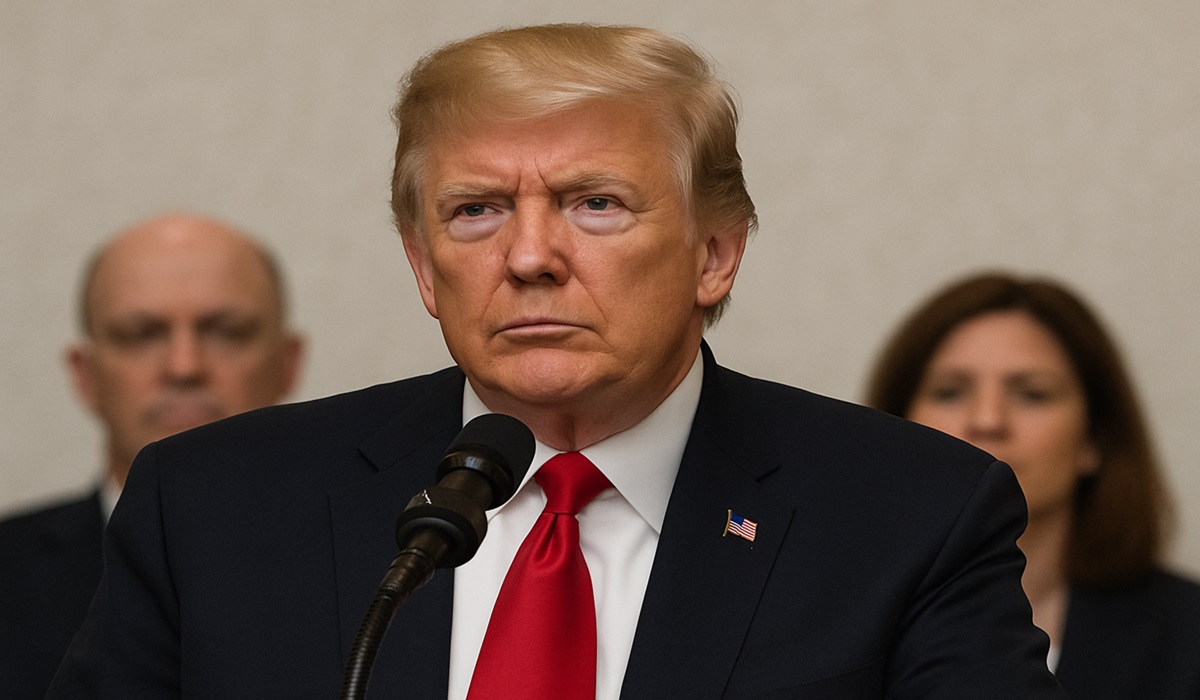One Big Beautiful Bill Passes: Tip Taxes Dropped, Critics Sound Alarm on Social Cuts and Debt
- Kingston Bailey
- U.S.A
- May 23, 2025

On May 22, 2025, U.S. President Donald Trump’s latest and highly controversial legislative package—the “One Big Beautiful Bill Act”—narrowly passed the House of Representatives by a razor-thin vote of 215 to 214. The bill represents one of the most ambitious expansions of the 2017 Trump-era tax cuts and has ignited intense debate across the political spectrum for its sweeping tax breaks, major changes to social safety nets, and ballooning cost to the federal budget.
At the heart of the bill is a headline-grabbing promise: no federal income taxes on tips or overtime pay for workers earning under $160,000 per year. This provision, which takes effect immediately upon Senate approval and presidential signature, is set to expire in 2028 unless renewed. For many hourly and service-sector workers, this is pitched as a tax holiday designed to reward labor in high-inflation times and reduce government overreach into the paychecks of Americans who work extended hours or rely on tips to survive.
But that’s just one piece of a sprawling fiscal overhaul. The bill also seeks to permanently lock in the 2017 individual and estate tax cuts that were set to sunset. Additionally, the child tax credit would temporarily rise to $2,500 until 2028 before returning to $2,000, while a new program called “Trump Accounts” proposes $1,000 government-funded savings accounts for children born between 2024 and 2028, earmarked for future educational or housing expenses.
To placate moderate Republicans, the cap on state and local tax (SALT) deductions would be raised from $10,000 to $30,000 for most filers, with those earning under $500,000 seeing an even higher cap of $40,000. On the spending side, the bill allocates billions toward military and border enforcement programs, including mass deportation logistics and surveillance technology, while simultaneously implementing stricter work requirements for recipients of Medicaid and the Supplemental Nutrition Assistance Program (SNAP).
Critics on the left and even some fiscal conservatives have been quick to pounce. Independent budget analysts warn that the package could add more than $3 trillion to the national debt over the next decade. They argue that the bill overwhelmingly benefits high-income earners, with the top 1% set to receive thousands in annual tax breaks while the working class gets temporary relief that vanishes in three years. Meanwhile, proposed cuts and eligibility restrictions to health and nutrition programs would likely force millions of Americans—especially seniors, low-income families, and people with disabilities—off vital services.
The political optics are glaring. While the tax-free tip and overtime measures dominate headlines, the deeper layers of the bill point to what critics call a cynical bait-and-switch: offer flashy populist tax relief while gutting programs that serve as a lifeline for the most vulnerable. Others argue the temporary nature of several key provisions, including the tax exemptions and Trump Accounts, are little more than election-year gimmicks, strategically timed to expire just after the 2028 presidential cycle.
What’s missing from the bill is just as telling. There is no plan to offset the costs of the tax cuts or the new spending. No serious effort to address health care affordability, college debt, or housing costs was included. Environmental spending is absent, and protections for workers or renters don’t appear anywhere in the 1,400-page document. In fact, despite its scale, the bill reads more like an omnibus of conservative priorities—defense expansion, tax sheltering, and welfare tightening—than a balanced plan to help all Americans.
Some experts have started calling it an “ominous bill,” a label historically reserved for legislative bundles that sneak in controversial policy changes under the guise of broad economic relief. And for good reason. The bill’s size and complexity make it difficult to parse, leaving room for unexpected or hidden implications to emerge later.
The next hurdle is the Senate, where the bill faces stiff opposition and possible revisions. President Trump has publicly demanded the upper chamber move swiftly, claiming the bill is essential for economic freedom and national security. Whether the Senate complies—or forces meaningful changes—will determine not just the bill’s survival, but its lasting legacy.
If passed in its current form, the bill would take effect within weeks, with the IRS and other federal agencies scrambling to implement the new tax codes and benefit regulations. For now, millions of Americans wait to see whether this sweeping piece of legislation will deliver real relief—or leave behind deeper inequality, larger deficits, and fewer safeguards for those most in need.








